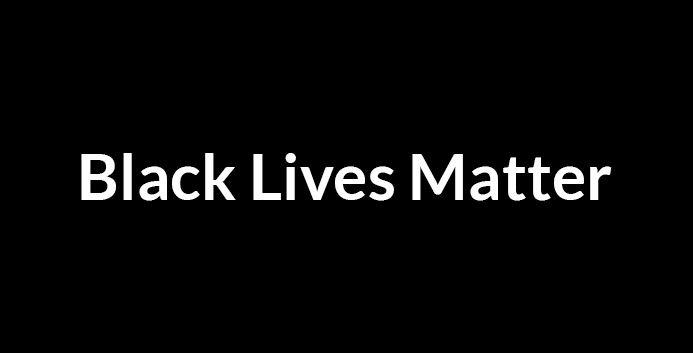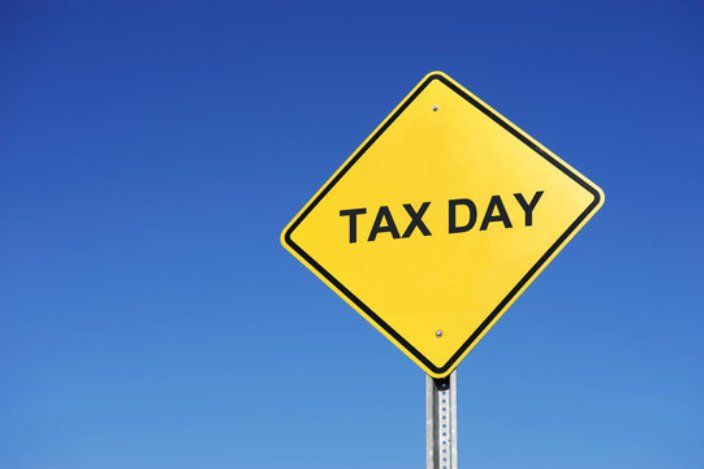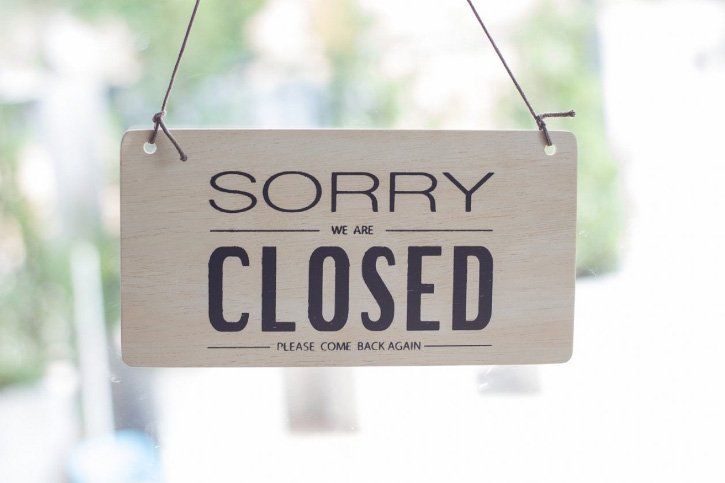Blog

Over the last three years, numerous Cook County tax purchasers failed to obtain tax deeds to unredeemed single-family occupied homes due to the clerk of the court and the Cook County Sheriff’s failure to timely mail tax notices within the statutory time frame to owners and occupants. The clerk and sheriff’s failures prohibited courts from entering a significant number of tax deed orders because there was failure of strict compliance as required by the Property Tax Code. As a result, the courts entered orders vacating these tax sales and required Cook County to refund the delinquent tax payments to the tax purchasers. Consequently, there are now numerous owner-occupied homes which are three or more years tax delinquent, and which are required to be sold at the next Cook County Scavenger Sale. If you own your residence and occupy it on the date a scavenger sale occurs, there is an opportunity for you to redeem your property for less than the amount of taxes due and return your property to tax paying status by taking advantage of a rarely used statute. Section 21-260(f) of the Scavenger Act states the following: Notwithstanding any other provision of this Section, except for owner-occupied single family residential units which are condominium units, cooperative units or dwellings, the amount required to be paid for redemption shall also include an amount equal to all delinquent taxes on the property which taxes were delinquent at the time of sale. In simple terms, this means that if you own and occupy a tax delinquent property at the time of a scavenger sale where your property is sold, you only have to pay the tax purchaser’s bid amount, plus applicable interest and fees, to legally redeem your property. For example, let us assume your property is four years tax delinquent for the years 2013- 2016, and the total amount of delinquent taxes you owe is $25,000. Since there are more than three years of tax delinquencies, the Cook County must offer your property for sale at its next scavenger sale. Unlike annual tax sales, the scavenger sale is a live auction where buyers call out their bids for each property. The minimum bid for tax purchasers is $250 for a property. The successful buyer pays the county their successful bid amount and receives a Certificate of Purchase. Let us further assume that your owner-occupied property is sold for $1,000 even though you owe $25,000 in delinquent taxes. The above law allows you to redeem your property for the $1,000 plus statutory interest and fees. This amount is far less than the $25,000 in taxes that you technically owe. Once you redeem the property, the 2013-216 taxes remain extinguished, and your property is no longer tax delinquent for those years County clerk employees will generally assist you in making this type of redemption. However, Carter Legal Group is here to help, and we can assist you in taking advantage of this little-known nuance in the law.

With the onset of COVID-19 in 2020, the Cook County Treasurer, Maria Pappas, seized on an opportunity to delay tax sales in Cook County. For years, Treasurer Pappas has consistently fought to have tax sales delayed in Cook County. When presented with the full picture, one can see that these delays actually cost homeowners additional money in the long run which could contribute to a loss of property to a tax deed. Every county treasurer in Illinois, except Treasurer Pappas, must file an application for judgment and order of sale for taxes on delinquent properties within 90 days after the second installment of taxes is due. 35 ILCS 200/21-150. As such, almost all counties in Illinois conduct tax sales in the fall following the second installment due date. Before Treasurer Pappas was elected, the Cook County Tax Sale generally occurred in January following the second installment due date. However, since Treasurer Pappas took office, the Cook County Tax Sale has been consistently delayed and reached a point where it was being held in September of the next year from the second installment due date. The default interest penalty which accrues on these tax delinquencies accrues at a rate of 1.5% per month or 18% per year. For every month there is no tax sale, the homeowner must pay an additional 1.5% in interest to the county. Further, if there is a delinquent payment, the municipalities are not allocated any of the interest Cook County collects as those funds are placed in the County’s general fund. Additionally, the delays in having the tax sales in Cook County prohibits municipalities from timely collecting the tax revenue it should have received months prior. These delays have an effect on a municipality’s services to the public as they are underfunded since the tax sale is delayed. A delay of any Cook County Tax Sale has no benefit to any municipality. The legislature recognized the problems associated with these delays amended the statute about 10 years ago to require Cook County to have its tax sales sooner with an ultimate goal of having the sales in March or April following the second installment due date. As the tax sales moved to the spring, Treasurer Pappas increased her public relations campaign to vilify these earlier tax sale dates by using rhetoric to increase a homeowners’ anxiety about the tax sales being held sooner than before. This campaign never properly explained to the homeowner the fact that for each month the tax sale was delayed, interest was accruing at 1.5% each month on the total unpaid tax amount which would only increase the overall tax delinquency. For homeowners who cannot pay before the tax sale, a larger amount of delinquent tax ends up being paid by the tax purchaser at the tax sale. Additionally, by the time the tax sale occurs, the next year’s tax is usually delinquent as well. Under the Property Tax Code, the tax purchaser can pay those subsequently accruing taxes almost immediately after the delayed tax sale and add it to their purchase causing a significant increase in redemption to the homeowner. Also, the realities of the Cook County Tax Sale are never quite thoroughly explained to the homeowner by Treasurer Pappas. Almost all of the properties sold at the tax sale are sold at a 0% penalty rate which immediately stops the county’s 1.5% interest from accruing. Further, most homeowners have 2 and ½ to 3 years to redeem their property from the tax sale. For example, the 2017 taxes were due in 2018 and if unpaid, the properties were sold in May of 2019. For residences sold, the redemption dates will fall between November of 2021 and May of 2022. That approximates to almost 4 years from the original tax due dates. The length of time of the redemption date, the process by which tax purchasers must notify interested parties of the final redemption date and the court’s insistence of strict compliance with the law, all were designed to protect a homeowner from losing their home to a tax deed. In July of 2020, Treasurer Pappas supported legislation which amended Section 21-150 of the Property Tax Code to specifically address the 2018 Cook County Tax Sale and all subsequent Cook County Tax Sales. The amendment prevents the application for judgment and order of sale for taxes on delinquent properties for the tax year 2018 from being filed until the first day of the first month during which there is no longer a statewide COVID-19 public health emergency, as evidenced by an effective disaster declaration of the Governor covering all counties in the State. To date, the Governor’s disaster declaration has not been lifted and Treasurer Pappas has not filed her application. It appears that when the 2018 tax sale does indeed occur, the amount of tax due from the homeowner will have increased by almost 40% based on the 1.5% the county charges on delinquent taxes. Further, the 2019 and 2020 taxes, if unpaid and delinquent, will also continue to accrue the 1.5% county interest and once the 2018 tax sale occurs, the 2019 and 2020 taxes will be quickly paid by tax purchasers. Those payments will immediately triple the amount due from the homeowner to redeem their property. As one can see, these delays cost the homeowner additional funds and increase the likelihood that a redemption of the property will not occur. Finally, Treasurer Pappas also supported additional language to the statute which allows her to delay all future Cook County Tax Sales as she is now only required to file her application for judgment and order of sale within 365 days of the second installment due date. As described above, the delays she supports only penalize the homeowner as more money will be owed and belies Treasurer Pappas’s own reasons for delaying Cook County Tax Sales.

Good afternoon, all. Courts in Cook County remain closed except for emergency matters and selected hearings. However, no tax deeds are being issued as county offices are closed to the public through July 6 per the recent decision of the Cook County Board of Commissioners; see executive order here . This means that nearly all new and existing tax deed filings are on hold and that court dates are being extended once again. We'll share any solid information as it becomes available. Many of you have asked about our office over the past few days and I am happy to report that our building in the Loop is intact and that no windows were broken. However, the same is not true for many of our local businesses here in Chicago that need our help now more than ever. There are many organizations to choose from but one that stands out is the Small Business Relief Fund , who will ensure that donations go to those in need. Cleanups are being organized throughout the city and people are coming together - wearing masks and socially distancing - in ways that make us proud to be Chicagoans. Please take care of one another and be safe.

Our physical office remains closed due to COVID-19, though we remain available to both current and new clients by phone or video conference. To schedule a meeting with us please click here . There have been no new announcements on the timing of the 2018 Cook County Annual Tax Sale. The tax sale website notes that emails will be sent to sale participants with future updates. The County Clerk has now set an extended redemption date of June 19, 2020 for any liens that would otherwise have expired between March 18, 2020 and May 4, 2020. They have also implemented a policy regarding the removal of accrued interest during that period. The office is accepting redemption payments by mail and postings of subsequent tax payments by email. They have posted various new documents detailing these policies and guidance on their website . Existing documents were updated yesterday, May 5, 2020. The County Division announced continuance dates for various tax deed matters but did so before the court announced its closure through May 30, 2020. Given this, we can likely expect new guidance from the County Division in the near future. The Chicago Bar Association has a COVID-19 Resource Page with various links that you may find useful, and the City of Chicago has a similar page . The Illinois Courts continue to post updates regarding court procedures throughout the state and has been a great resource.

There have been no announcements on the timing of the 2018 Cook County Annual Tax Sale. The tax sale website notes that emails will be sent to sale participants with future updates; we will send any updates that we receive. The Cook County Clerk remains closed for processing redemption payouts, new postings, and tax deeds, but can process extensions of the redemption period by mail. This information can be found at the links below. Finally, the Circuit Court of Cook County remains closed through at least May 18, 2020. A copy of the Order entered by the court can be downloaded from our secure site here . We will continue to provide updates as they become available, but in the meantime you may find the below useful. Please contact us if we can be of service! The U.S. Small Business Administration’s Paycheck Protection Program began (a loan designed to provide a direct incentive for small businesses to keep their workers on the payroll; the SBA will forgive loans if all employees are kept on the payroll for eight weeks and the money is used for payroll, rent, mortgage interest, or utilities) The Cook County Clerk will accept extensions of the period of redemption, but most services are still suspended (documents found here and here ) The IRS has extended the tax filing and payment deadline for most taxpayers to July 15, 2020 (and many states followed) Many local governments are deferring payment of business taxes & fees

As positive cases of coronavirus disease (COVID-19) continue to rise in our community, our physical offices remain closed. We continue to monitor the conditions both locally and nationally and will update this page and our clients when we expect to reopen. The safety of our staff, clients and friends remains our top priority. Developments this week in Illinois include the indefinite postponement of the 2018 Cook County Annual Tax Sale. A press release announcing the postponement can be found here. You can also download a copy of the press release from our secure site. Other county offices remain closed, as we noted on March 19. We do not have any further information at this time. However, other counties throughout the State of Illinois remain open for business and are processing redemption payments, posting of costs, and tax payments as normal. As always, we remain available for questions or concerns at any time.

In accordance with the firm’s policies, our physical offices are closed until further notice. This is based on recommendation from both local and national authorities. However, we are operating at full capacity remotely and remain open for business by phone and email. In the past days, county and city offices have announced widespread closures, including the Cook County Treasurer, Cook County Clerk, Cook County Recorder of Deeds, and Cook County Assessor. To receive updates on these closures, please utilize the links in the post below or contact our office. There have been two court orders entered that pertain to tax deeds. These include an announcement that all matters scheduled from March 17, 2020 through April 17, 2020 will be continued to a date 30 days from the originally scheduled date. Judges will still be available to enter agreed orders, and court deadlines are automatically extended for at least 30 days. These are positive developments that will allow us to process work during the various closures. Those court orders are posted here for you to review and save. Please reach out to us if you have any questions about your specific case, and rest assured that we are doing our part to make sure that things get done in a timely manner.

We're updating our office policies and procedures to reflect changing conditions in our community. As courts and governmental offices close, we want to assure you that Carter Legal Group will continue working both in-office and remotely to deliver for our clients. As a client or vendor, we ask that you discontinue all non-essential visits to our office and instead mail or FedEx documents and conduct other business over the phone. If this is difficult for you or if you need any additional guidance, please contact us. At this time, it is too early to know what impact COVID-19 will have on any existing cases, deadlines or court dates. We are working overtime to ensure that deadlines are met and existing work is completed. If you have specific questions about your matters, please recognize that we are receiving similar inquiries from many clients and that any response may be delayed. If you’d like more information on how COVID-19 is affecting Illinois and our courts, you can find updates at the below websites: Illinois Courts Cook County City of Chicago Illinois Department of Public Health For information from the CDC, click here .

